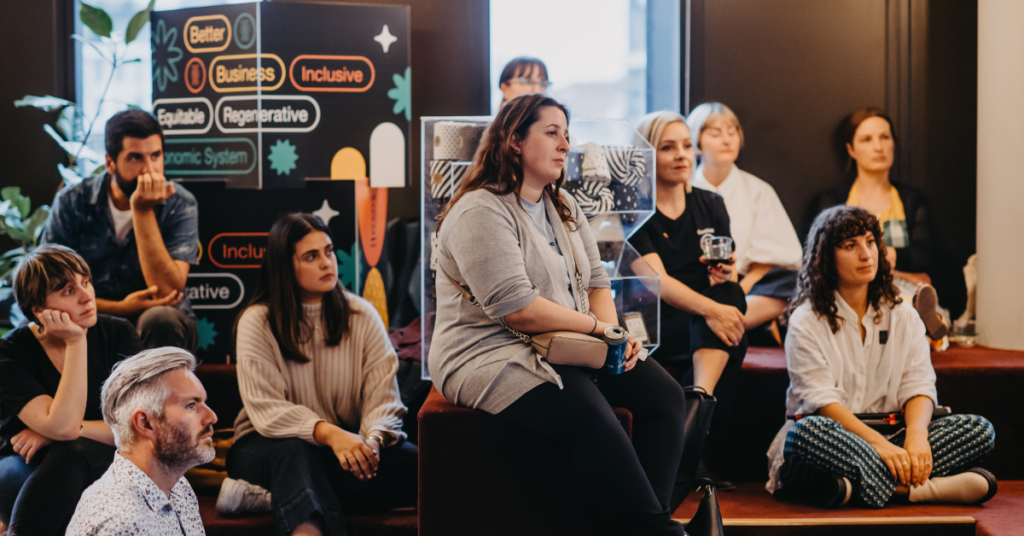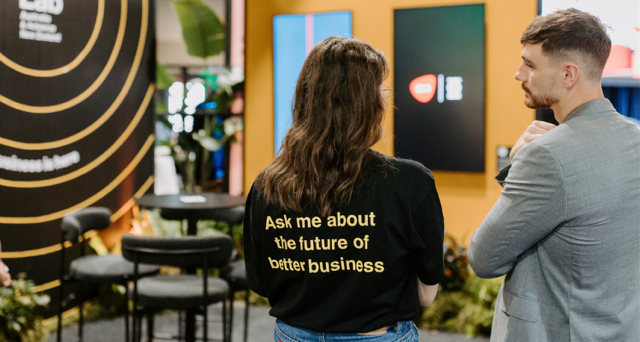As we step further into 2025, businesses around the world are feeling the weight of growing complexity and division. Sustainability and diversity, equity and inclusion (DEI) are now facing increased scrutiny and in some cases, regulatory rollback.
From the EU Omnibus proposal, to the politicisation of DEI in the US (and its echoes in our part of the world), to the continued impact of conflict and economic instability, conducting business with an eye on the long term, and prioritising wider stakeholders, seems to be getting harder – despite a decade of what has felt like progress in making business for good, also good business.
It’s times like these that leadership is defined. For more than two decades, B Corps have modelled a different way to do business – one that prioritises people and planet, alongside profit. As we look ahead, that model is more vital than ever.
At B Lab Australia and Aotearoa New Zealand, we believe that this moment calls not for retreat, but for resilience. It’s time for business to stand firm on purpose, lead boldly, and continue the work in building an inclusive, equitable and regenerative economy. And B Lab is evolving to meet (and go beyond) the moment too.

Image: B Lab AANZ
The business, systems, and moral imperative for better business
Evidence and history show that holding firm on sustainability and DEI isn’t just the right thing to do; it’s a smart, strategic choice.
The business case is clear:
In an unpredictable world, it’s the businesses anchored by purpose and guided by strong governance that last. Purpose-led companies think beyond short-term wins and shareholder profits, taking all stakeholders into account – from employees, to suppliers, to communities. That mindset builds trust, resilience, and long-term value.
We’ve seen it in the data. In 2023, 95% of Certified B Corps stayed operational through the pandemic, compared to 88% of other businesses.
Research by Accenture found that businesses that are achieving high environmental and social performance standards are seeing 2.6x higher shareholder returns.
Why? Because when you’ve got a clear purpose, you inspire your team, attract loyal customers, and bring in investors who believe in what you’re doing. And when that purpose is more than words, when it’s baked into a business through real accountability mechanisms, it builds resilience, clarity and long-term credibility.

Image: Elin Bandmann Photography
The systems case is urgent:
“It is easier to imagine an end to the world than an end to capitalism”
– Fredric Jameson and Slavoj Žižek
Even the most sustainable business can’t go the distance in an unsustainable system. All businesses have a stake in this.
Right now, we’re at a turning point. Do we let a few purpose-led companies carry the load, or do we shift the system itself – so that long-term value is rewarded over short-term gain?
The truth is, isolated action isn’t enough. We need systemic change. That means collaboration across business, government, investors and communities. We need innovation and regulation working together to lift the bar. We need policy that’s both ambitious and enabling, making it easier for businesses to scale their impact.
The moral case is critical:
People expect businesses to lead, not just comply. For decades, companies have enjoyed many of the same rights as individuals – owning property, hiring people, entering contracts. But unlike individuals, they’re shielded from personal liability.
With that power, comes responsibility: businesses must be moral actors. Despite legislative progress, from anti-slavery laws to human rights protections, corporations still have the capacity to exploit. No law or policy can predict every ethical decision a business might face. That’s why moral leadership isn’t optional. It’s essential, and it’s part of the system itself.
In a world that’s interconnected and uncertain, we need collective action from players willing to lead with integrity, act with courage, and stand together for the long term.
Evolving to meet the moment: introducing B Lab’s new standards
The world is changing, and B Lab is too. Last week, we unveiled our new standards: a bold, open-source blueprint designed to help businesses lead with purpose, scale their impact, and navigate complexity with confidence.
From climate action and environmental stewardship to employee wellbeing and stakeholder governance, the new standards are relevant to the challenges of today and tomorrow, focusing on the most important social and environmental issues facing people and the planet.
This isn’t just a standards refresh, it’s a reimagining of what responsible business looks like in 2025 and beyond.
Standing firm, together
The reality is clear: the environment for responsible business is shifting. So the question is: do we ease off, or double down?
History suggests that businesses grounded in purpose and long-term thinking are more likely to weather uncertainty, and help shape what comes next.
This isn’t the time to lower the bar. It’s a time to stay focused and steady, and keep pushing for progress.
To our B Corp community and like-minded businesses: stay the course. Zoom out, take a long-term perspective, and act with unwavering commitment to justice, sustainability, and ethical leadership.
And when the pressure’s on, don’t just ask what the rules require: ask what kind of business you want to be. One that reacts to the storm, or one that helps shape a stronger, fairer future for everyone? At B Lab we’re here for you, and for the change we all seek.

